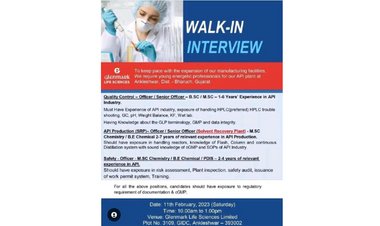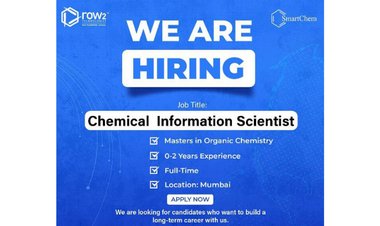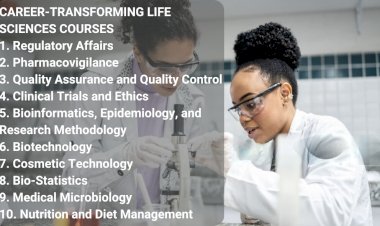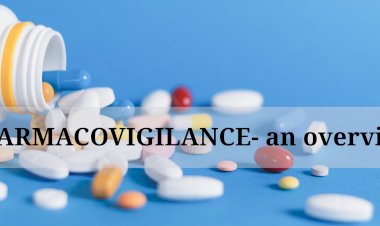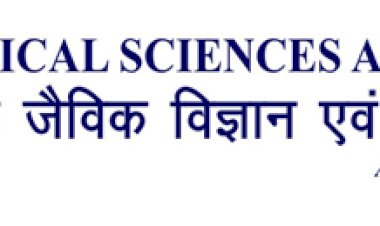Regulatory Affairs in Pharmaceutical Industry
Discover the crucial role of Regulatory Affairs in the pharmaceutical industry. From drug development to post-marketing surveillance, learn how this field ensures the safety, efficacy, and compliance of medicines across global markets.

What Is Regulatory Affairs, and Why Does It Matter?
When we think about the pharmaceutical industry, our minds often jump to scientists in labs, ground-breaking research, or the medications we see on pharmacy shelves. But behind every approved drug lies a world of documentation, approvals, and strict guidelines. At the heart of this process is Regulatory Affairs (RA)—a field that may not always grab headlines but is absolutely critical to public health.
Regulatory Affairs is the discipline that ensures pharmaceutical products are developed, manufactured, and marketed in a way that meets all the legal and scientific standards set by government agencies. In simple terms, RA is the bridge between pharmaceutical companies and the regulators who oversee drug safety and efficacy.
The Role of RA from Lab Bench to Market Shelf
From the earliest stages of drug development, RA professionals are involved in shaping strategy. Before a new medicine is ever tested on humans, these experts help decide how clinical trials should be designed, what data will need to be collected, and how that information should be presented to agencies like the U.S. Food and Drug Administration (FDA) or the European Medicines Agency (EMA). Their goal? To ensure the process runs smoothly and efficiently, without compromising safety or quality.
One of the most important tasks for regulatory teams is preparing submissions that seek approval to begin clinical trials or bring a drug to market. These submissions include thousands of pages of scientific data, manufacturing protocols, and safety information. It’s meticulous, detailed work—and even minor errors can lead to costly delays or rejections.
After Approval: The Work Continues
The role of regulatory affairs doesn’t stop once a product gets the green light. Post-marketing responsibilities are equally critical. RA teams help monitor side effects, coordinate safety updates, ensure accurate labelling, and manage any necessary changes in how a product is manufactured or distributed. If something goes wrong, it’s the regulatory team that steps in to guide how the issue is addressed with health authorities and the public.
Regulatory Affairs in a Globalized Market
In today’s pharmaceutical world, medicines are rarely created with just one country in mind. Companies aim for global launches, which means navigating a complex patchwork of international regulations. What’s acceptable in one country might not be in another.
Organizations like the International Council for Harmonisation (ICH) have helped to align certain requirements across regions, but differences still exist—and staying on top of them is a full-time job. This is where RA professionals prove invaluable, not just for compliance, but for strategic global planning.
Adapting to Innovation: A Fast-Changing Landscape
Science is advancing at a rapid pace. Gene therapies, digital health solutions, AI-assisted diagnostics—each new innovation comes with fresh regulatory questions. How do you evaluate the safety of an AI algorithm? What are the long-term risks of editing human genes? Regulatory Affairs must evolve alongside science, ensuring that new therapies are thoroughly reviewed without stifling innovation.
Because of this, RA is increasingly recognized not just as a regulatory checkpoint, but as a strategic partner in drug development.
IBRI Noida: Building the Next Generation of Regulatory Experts
To meet the growing demand for skilled RA professionals, institutions like the Indian Biological Sciences and Research Institute (IBRI), Noida, are playing a pivotal role. IBRI offers a comprehensive course in Regulatory Affairs that blends scientific understanding with real-world regulatory strategy. Designed by industry experts, their program provides hands-on training, exposure to global regulations, and practical case studies that prepare students for the complexities of the pharmaceutical world. For aspiring professionals, IBRI Noida serves as a launchpad into a high-impact, future-focused career.
A Career Path for the Scientifically Curious and Strategically Minded
For those interested in blending science, law, communication, and strategy, Regulatory Affairs offers a fulfilling career. It requires a mix of precision and big-picture thinking, and it provides the rare opportunity to influence how healthcare innovations reach the world.
While not always in the spotlight, RA professionals are the people making sure that new medicines are safe, effective, and trustworthy. Their work helps protect patients and supports companies in delivering life-changing treatments efficiently and ethically.
Conclusion: More Than Just Compliance
Regulatory Affairs is more than just paperwork and policies—it’s a field rooted in responsibility and impact. Behind every pill, vaccine, or injection is a long trail of expert navigation through complex regulatory waters. RA ensures that by the time a drug reaches a patient, it’s passed every test and cleared every hurdle.
In a world increasingly reliant on science and innovation, the importance of regulatory affairs has never been clearer. It’s not just about following rules—it’s about shaping the future of medicine









